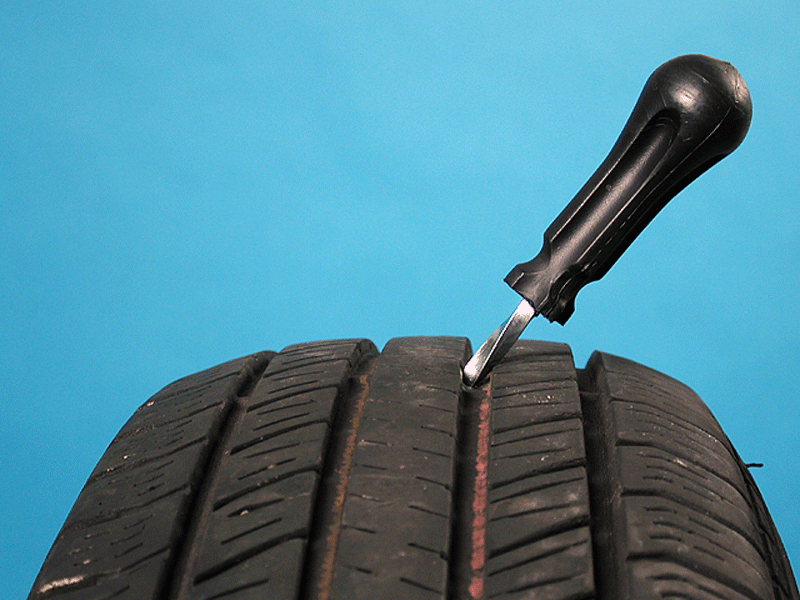The Ultimate Tire Repair List for Safety And Security and Cost Savings
Maintaining optimum tire problems is an essential aspect of guaranteeing safety and security on the road and making the most of cost-efficiency in the long run. From tire pressure to tread deepness, each part plays a crucial duty in the total performance of your car.
Importance of Tire Maintenance
Regular tire upkeep is essential for making sure automobile security and expanding the lifespan of your tires. By correctly preserving your tires, you not only improve the overall efficiency of your lorry but additionally decrease the threat of crashes triggered by tire-related issues. Tire pressure should be routinely examined and adjusted to the producer's specifications to ensure optimum fuel effectiveness and traction on the roadway. In addition, rotating your tires at suggested periods promotes even tread wear, causing a longer life expectancy for your tires and far better handling of your car. Keeping track of the tread depth is additionally necessary, as damaged treads can result in decreased grip, specifically in damp or icy problems.
In addition, routine tire inspections can aid identify possible concerns such as punctures, cuts, or bulges, which if left ignored, can result in tire failing. tire tracks morris il. Proper alignment and harmonizing add to a smoother trip, boosted fuel effectiveness, and avoidance of irregular tire wear. Finally, prioritizing tire upkeep not just guarantees your safety and security when driving however likewise conserves you cash by extending the life of your tires and avoiding expensive repairs or substitutes
Checking Tire Pressure
Making certain the appropriate inflation of your tires is a fundamental element of lorry upkeep that straight impacts safety and performance. Proper tire stress not only enhances handling and braking yet also adds to fuel performance. To examine tire stress, make use of a tire pressure scale to determine the air stress in each tire, including the extra. Refer to the automobile supplier's advised PSI (extra pounds per square inch) degrees, usually found on a sticker inside the chauffeur's door, in the proprietor's handbook, or online. It is advisable to inspect tire stress when the tires are cool, as driving warms the tires and enhances stress readings. Bear in mind to examine stress levels consistently, at the very least once a month, and eventually journeys. Overinflated or underinflated tires can cause unequal step wear, lowered grip, and possible blowouts. By keeping proper tire stress, you not just ensure your security however also extend the life-span of your tires and optimize gas economy.
Evaluating Footstep Deepness
To make certain ideal safety and performance of your lorry, Full Article an essential facet of tire maintenance involves assessing the step deepness regularly. The step on your tires plays an important function in preserving traction when driving, particularly in damp or unsafe problems - morris tire. Inadequate walk depth can lead to reduced grasp, longer braking ranges, and a raised danger of hydroplaning
One typical approach to inspect walk deepness is by utilizing a walk depth scale. Place the scale into the tread grooves to determine the depth. The majority of new tires have a step deepness of around 10/32 to 11/32 of an inch. As the walk uses down, it is necessary to monitor it routinely. The minimum lawful walk deepness limit is 2/32 of an inch in the majority of states, however, for boosted safety, it is recommended to change tires before they reach this limit.

Consistently inspecting your step deepness and changing tires when necessary will certainly not only enhance your safety and security when driving however also add to set you back financial savings by boosting fuel efficiency and expanding the click for more life expectancy of your tires.
Identifying Tire Damages
Inspecting your tires for indications of damages is crucial for keeping roadway safety and protecting against possible risks. Routinely inspecting for tire damage can aid you attend to problems early and avoid extra substantial and pricey repairs down the line. When inspecting your tires, keep an eye out for cuts, slits, protrudes, fractures, and any kind of other irregularities on the walk or sidewall. These might indicate potential powerlessness that may result in a blowout or loss of control while driving.

Expanding Tire Life Expectancy
Normal maintenance practices and appropriate driving behaviors are vital consider optimizing the durability of your tires. To extend the life-span of your tires, begin by ensuring they are effectively inflated according to the supplier's recommendations. Underinflated tires can bring about raised wear and decreased gas effectiveness. Additionally, rotate your tires regularly to promote also step wear. This method aids to prolong the life of your tires by guaranteeing that they put on down uniformly. Maintaining your wheels appropriately straightened is likewise vital in protecting against unequal wear patterns that can shorten tire life-span. Moreover, you can try here preventing abrupt quits, sharp turns, and speeding can decrease unneeded damage on your tires. Consistently examine your tires for indications of damages, leaks, or unequal wear, and deal with any concerns without delay to protect against more damage. By complying with these methods, you can significantly expand the life-span of your tires, conserving you cash in the future.

Conclusion
To conclude, routine tire maintenance is essential for making sure safety and security and saving money in the future. By examining tire stress, evaluating step deepness, recognizing tire damages, and expanding tire life-span, motorists can protect against accidents and pricey fixings. Prioritizing tire upkeep is a simple yet effective way to stay safe when driving and prevent unnecessary costs.